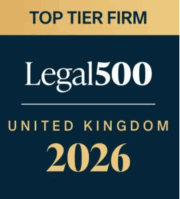The Courts and Tribunals Judiciary announced on Monday 27 January 2025 that open reporting provisions will now apply to all family courts in England and Wales effective from 27 January 2025.
This decision has been made following a reporting pilot that was applied to select family courts over the past 2 years. The reporting pilot was launched in January 2023 in Leeds, Carlisle and Cardiff and in January 2024 it was extended to 14 further court areas. During this pilot there have been no known breaches of the anonymity of children.
The extension of the open reporting provisions from the pilot courts to the remaining family courts in England and Wales will follow a stepped arrangement. The reporting provisions will first extend to all public law cases, then private law cases and finally magistrates. This stepped extension means that since 27 January 2025, journalists and legal bloggers have been able to report on what they see and hear whilst attending any family court, as long as a transparency order is granted.
A transparency order is a new standard order that the court will consider making where a reporter or legal blogger attends a hearing either remotely or in person. The transparency order would set out what details cannot be reported and can be varied by the court to the specifics of a case. The court also retains the discretion to direct that there shall be no reporting on a case.
There is now a presumption that when a journalist or legal blogger attends a hearing a transparency order will be granted, which protects the anonymity of children and their families, unless a legitimate reason is provided for an order not to be made.
The President of the Family Division, Sir Andrew McFarlane, has called this a “watershed moment” in the family courts of England and Wales and has expressed that greater public understanding and confidence in the Family Court is fundamental.
The standard transparency order that would be made at each hearing provides that the following must not be reported without the express permission of the court:
a. The name or date of birth of any subject child in the case;
b. The name of any parent or family member who is a party or who is mentioned in the case, or whose name may lead to the child(ren) being identified;
c. The name of any person who is a party to, or intervening in, the proceedings;
d. The address of any child or family member;
e. The name or address of any foster carer;
f. The school/hospital/placement name or address, or any identifying features of a school of the child;
g. Photographs or images of the child, their parents, carer or any other identifying person, or any of the locations specified above in conjunction with other information relating to the proceedings;
h. The names of any medical professional who is or has been treating any of the children or family member;
i. In cases involving alleged sexual abuse, the details of such alleged abuse;
j. For the purposes of s.97(2) Children Act 1989, any other information likely to identify the child as a subject child or former subject child.
A transparency order, once made, would remain in place until the child/children to whom the proceedings relate reaches the age of 18.
The Transparency Implementation Group has provided full guidance for reporting in the family court which can be downloaded here.
Who can attend and report on proceedings
Only accredited journalists (who carry a UK press card) and legal bloggers (who would be a duly authorised lawyer themselves) may attend and report on proceedings. The court does however retain the power to permit the attendance of a person other than a journalist, but it is anticipated that a non-press card carrying journalist will need to produce a signed letter from their editor to obtain permission to report on the proceedings.
Impact on proceedings
The impact this will have on family proceedings is that parties and their legal representatives must now prepare in advance for a journalist to sit in on their hearings and report upon the proceedings.
As legal practitioners, it will be our job to assess, on a case by case basis, if reporting on the case would be inappropriate and to make this clear to the court if a journalist/legal blogger attends a hearing with the intention of reporting on the proceedings.
It is anticipated that this may, in practice, increase the number of cases being resolved by way of private Arbitration or other non-court dispute resolution options.
















